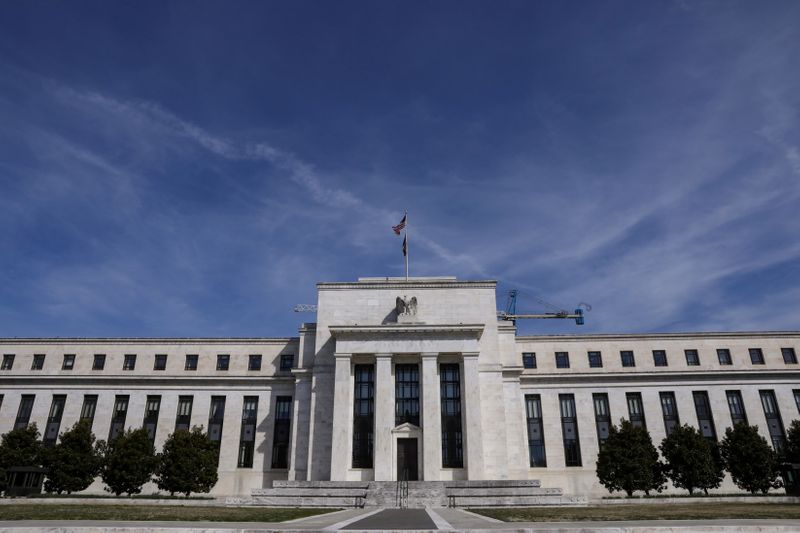CHICAGO (Reuters) – The Federal Reserve broadened the universe of states and local governments that can tap into a new $500 billion borrowing program for cash needed in the wake of the coronavirus outbreak, but certain newly disclosed requirements may shut some out, municipal market analysts said on Tuesday.
The U.S. central bank said on Monday it will buy bonds from counties with as few as 500,000 residents and cities with as few as 250,000 residents, an increase from its original plan that only targeted states and the largest local governments.
The $3.8 trillion muni market, where yields climbed on Tuesday as a concession to bigger supply, was digesting program details. The iShares National Muni Bond ETF <MUB> also fell 0.4%.
With the flow of more federal money uncertain, cities, states and counties facing deep revenue losses from the economic fallout of shutdowns aimed at curbing the spread of the novel coronavirus may need to borrow to keep their governments operating.
The Fed offered a municipal liquidity facility as an alternative to flooding the muni market, which has been subject to recent bouts of unprecedented volatility, with cashflow debt issuances.
While the Fed extended the maturity of the loans to three years from two, it also released details on eligibility and pricing information that have caused a stir. One requires “written certification” that the government cannot “secure adequate credit accommodations from other banking institutions.”
“Clearly, the way it’s written will hamper participation,” said Mikhail Foux, head of municipal strategy at Barclays, adding that the program will “effectively be used as a backstop unless the language is changed.”
The language appears to allow consideration of abnormal pricing conditions in which borrowing costs or terms are “inconsistent with a normal, well-functioning market.”
Eligibility is also limited to governments with investment-grade credit ratings as of April 8.
Matt Fabian, a partner at Municipal Market Analytics, said the program will still be helpful to the muni market.
“By forcing governments to look to the traditional market first, it will restore the traditional market faster,” he said.
As for the cost of borrowing under the yet-to-be-launched program, the Fed said it will establish a pricing methodology based on an issuer’s long-term rating and the maturity of its notes, plus a spread over an existing benchmark or index.
In addition, issuers must pay an origination fee equal to 10 basis points of the principal amount of the notes purchased under the program.
In triple-A-rated Virginia, lawmakers passed legislation allowing the state to tap the program for itself or local governments, according to state Treasurer Manju Ganeriwala, who said there were no immediate plans to do so.
She added that the program’s pricing would have to be beneficial.
“If I could just get a better rate in the market, I would rather do that,” she said.
Jennifer Sciortino, a spokeswoman for the New Jersey Treasurer’s Office, said the state is awaiting more details on interest rates and loan terms, as well as for action by state lawmakers on emergency bond legislation that would allow for it to participate in the program.
(Reporting By Karen Pierog, editing by Alden Bentley and Sonya Hepinstall)



















